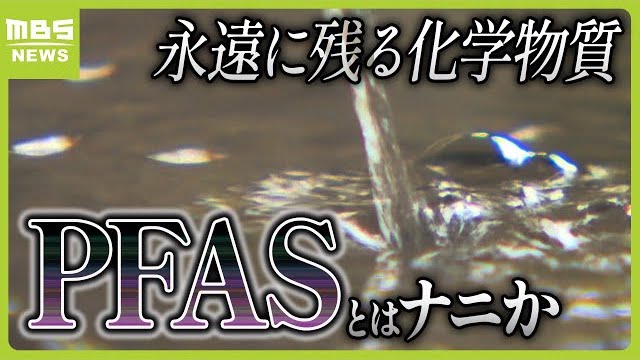TOKYO, Jul 04 (News On Japan) - The Japanese government has requested all water utility companies to report the results of water quality tests by the end of September regarding the organic fluorine compound "PFAS." But what exactly is PFAS, and is Japan's tap water safe? Based on interviews with Koji Harada, an associate professor at Kyoto University, we delve into the topic.

PFAS is a term unfamiliar to many, but it refers to a group of over 4,700 synthetic chemicals created by humans, not found in nature. These chemicals have been used for various applications, such as non-stick coatings on frying pans and water repellents for clothing. Although not all PFAS are harmful, two types, PFOS and PFOA, are known to pose health risks and are banned by international treaties. However, many others remain under scrutiny.
One of the primary concerns with PFAS is their persistence in the environment and the human body. PFAS do not break down easily, with some taking up to 100 years to reduce by half. This persistence means they can accumulate in the body over time, potentially leading to health issues such as reduced birth weight and decreased vaccine efficacy. The Japanese Food Safety Commission has indicated that these chemicals might affect cholesterol levels and arterial health, similar to findings in other countries.
Despite the potential health risks, PFAS are still detected in various environments, including water sources worldwide. The chemicals can spread through water and air, reaching distant locations. This widespread presence has led to global efforts to address and regulate PFAS use and disposal.
In Japan, recent guidelines have set a safe daily intake limit for PFOS and PFOA at 20 nanograms per kilogram of body weight. For a person weighing 60 kilograms, this translates to a maximum of 1,200 nanograms per day. The government has also established a target concentration for drinking water at 50 nanograms per liter, which is relatively higher than the limits set by Germany and the United States.
To mitigate exposure, consumers are advised to check water quality reports from their local water utilities and consider using water filters. However, boiling water is ineffective against PFAS, and only certain types of activated carbon filters can reduce these chemicals.
The issue of PFAS contamination highlights the challenges in balancing industrial benefits with environmental and public health. As more data emerges, stricter regulations and safer alternatives are likely to be developed. In the meantime, public awareness and precautionary measures are essential to safeguard health and the environment.
Source: MBS















